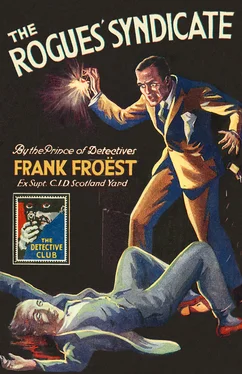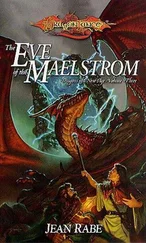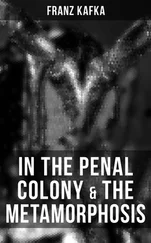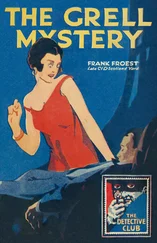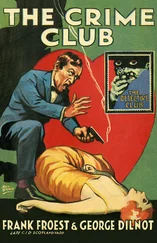He sat up, and at once a dapper little man was by his side.
‘Ah, you’ve woke up. Feeling better? That’s right. Drink this. We want you to pull yourself together for a little while.’
‘Thanks. I’m all right,’ returned Hallett, mechanically. He drank something which the other held out to him in a tumbler, and a rush of new life thrilled through him. ‘Are you Mr Menzies?’
‘No; I’m the police divisional surgeon. Mr Menzies is in the next room. Think you’re up to telling him what has happened? He’s anxious to know the meaning of all this.’
‘So am I,’ said Hallett grimly, and staggered to his feet. ‘Just a trifle groggy,’ he added, as he swayed, and the little doctor thrust a supporting shoulder under his arm.
The three in the next room rose as Hallett was ushered in. It was Foyle who sprang to assist Hallett, and lifted him bodily on to the settee, which Menzies pushed under the chandelier. The doctor went out.
‘Quite comfortable, eh?’ asked Foyle. ‘Let me make that cushion a bit easier for you. Now you’re better. We won’t worry you at present more than we can help, will we, Menzies?’
The three officials, for all that their solicitude seemed solely for the comfort of the young man, were studying him keenly and unobtrusively. Already they had talked him over, but any suspicions that they might have held were quite indefinite. At the opening stage of a murder investigation everyone is suspected. In that lies the difference between murder and professional crime. A burglary, a forgery, is usually committed for one fixed motive, by a fixed class of criminal, and the search is narrowed from the start. A millionaire does not pick pockets, but he is quite as likely as anyone else to kill an enemy. In a murder case no detective would say positively that any person is innocent until he is absolutely certain of the guilt of the real murderer.
Hallett, whose brain was beginning to work swiftly, held out his hand to the chief-inspector.
‘Pleased to meet you, Mr Menzies. I’ve got a letter of introduction to you from Pinkerton. That’s how I came to ring you up. My name’s Hallett.’
Menzies shook hands.
‘Pleased to meet you, Mr Hallett. This is Sir Hilary Thornton—Mr Heldon Foyle.’
‘And now,’ said Jimmie decisively, when the introductions were done, ‘do you people think I killed this man, Greye-Stratton?’
The possibility had been in the minds of everyone in the room, but they were taken aback by the abruptness of the question. Weir Menzies laughed as though the idea were preposterous.
‘Not unless you’ve swallowed the pistol, Mr Hallett. We’ve found no weapon of any kind. You were locked in, you know. Now tell us all about it. I couldn’t hear a word you said on the telephone.’
They all listened thoughtfully until he had finished. Thornton elevated his eyebrows in question at his two companions as the recital closed.
‘Where are those cheques?’ asked Foyle. ‘They may help us.’
Hallett patted his pockets in rapid succession.
‘They’re gone!’ he exclaimed. ‘They must have been taken off me when I was knocked out.’
‘H’m!’ said Foyle reflectively. ‘Can you make anything of it, Menzies?’
The chief-inspector was gnawing his moustache—a sure sign of bewilderment with him. He shrugged his shoulders.
‘There’s little enough to take hold of,’ he returned. ‘Could you recognise any of the people you saw again, Mr Hallett—the girl, the man who was running after her, or the chap in the house?’
‘I haven’t the vaguest idea of what the face of either of the men was like,’ said Hallett.
‘But the woman—the girl?’ persisted Menzies.
Hallett hesitated.
‘I—I think it possible that I might,’ he admitted. Then an impulse took him. ‘But I’m sure she’s not the sort of person to be mixed up in—in—’
The three detectives smiled openly.
‘In this kind of shemozzle, you were going to say,’ finished Menzies, ‘There’s only one flaw in your reasoning. She is.’
Wrung as dry of information as a squeezed sponge of water, Hallett was permitted to depart. The courtesy of Sir Hilary Thornton supplied him with a motor-car back to his hotel; the forethought of Menzies provided him with an escort in the shape of a detective-sergeant. Hallett would have been less pleased had he known that the before-mentioned detective-sergeant was to be relieved from all other duties for the specific purpose of keeping an eye upon him. Weir Menzies was always cautious, and, though his own impression of the young man had been favourable enough, he was taking no chances.
All through that night Weir Menzies drove his allies hither and thither in the attempt to bring the end of the ravelled threads of the mystery into his hand. No one knew better than he the importance of the first hot burst of pursuit. An hour in the initial stages of an investigation is worth a week later on. The irritation at being kept out of bed had vanished now that he was on the warpath. He could think without regret of a committee meeting of the church restoration fund the following day, from which he would be forced to absent himself.
Scores of messages had been sent over the private telegraph and telephone system of the Metropolitan Police before, at seven o’clock in the morning, he took a respite. It was to an all-night Turkish bath in the neighbourhood of Piccadilly Circus that he made his way.
At nine o’clock, spruce and ruddy, showing no trace of his all-night work beyond a slight tightening of the brows, he was in Heldon Foyle’s office. The superintendent nodded as he came in.
‘You look fine, Menzies. Got your man?’
The other made a motion of his hand deprecatory of badinage.
‘Nope,’ he said. ‘But I’ve got a line on him.’
Foyle sat up and adjusted his pince-nez.
‘The deuce you have! Who is he?’
‘His name is Errol,’ said Menzies. ‘He’s a prodigal stepson of Greye-Stratton, and was pushed out of the country seven years ago.’
‘Menzies,’ said Foyle, laying down his pince-nez, ‘you ought to be in a book.’
WEIR MENZIES fitted his form to the big armchair that flanked Foyle’s desk, and dragged a handful of reports, secured by an elastic band, from his breast-pocket. Foyle snipped the end off a cigar, and, leaning back, puffed out a blue cloud of smoke.
‘It’s been quick work, though I say it myself,’ observed Menzies complacently, ‘especially considering it’s a night job. This night work is poisonous—no way of getting about, no certainty of finding the witnesses you want, everyone angry at being dragged out of bed, and all your people knocked up the next day when they ought to be fresh.’
Foyle flicked the ash from his cigar, and a mischievous glimmer shone in his blue eyes.
‘It’s tough luck, Menzies. I know you hate this kind of thing. Now, there’s Forrester—he’s got nothing in particular on. If you like—’
Menzies’ heavy eyebrows contracted as he scrutinised his chief suspiciously. Untold gold would not have induced him to relax willingly his hold of a case that interested him.
‘I’m not shifting any job of mine on to anyone else’s shoulders, Mr Foyle,’ he said acidly.
‘That’s all right,’ said Foyle imperturbably. ‘Go ahead.’
Menzies tapped his pile of statements.
‘As far as I can boil down what we’ve got, this is how it stands. Old Greye-Stratton was a retired West Indian merchant—dropped out of harness fifteen years ago, and has lived like a hermit by himself in Linstone Terrace Gardens ever since. It seems there was some trouble about his wife—she was a widow named Errol when he married her, and she had one son. Five years before the crash there was a daughter born. Anyway, as I was saying, trouble arose, and he kicked his wife out, sent the baby girl abroad to be educated, and the boy—he would then be about twenty—with his mother. Well, the woman died a few years after. Young Errol came down to Greye-Stratton, kicked up a bit of a shindy, and was given an allowance on condition that he left the country. He went to Canada, and thence on to the States, and must have been a bit of a waster. A year ago he returned to England, and turned up at Linstone Terrace Gardens. There was a row, and he went away swearing revenge. Old Greye-Stratton stopped supplies, and neither the lawyers nor anyone else have seen anything of Errol since.’
Читать дальше
